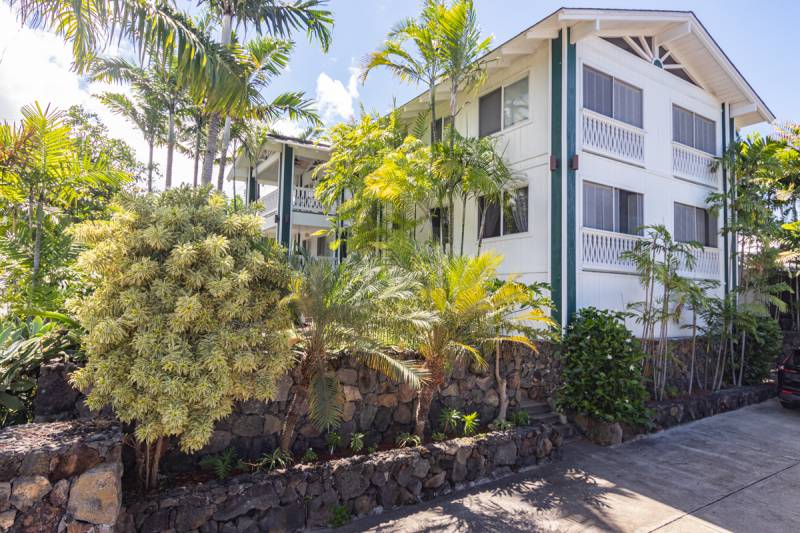How to Break Even and Maximize Long-Term Value in Hawaii Island Real Estate Investments
Hawaii Island offers a unique tapestry of potential returns for those investing in both residential and vacation properties, each with its own path to breaking even and achieving profitability. The island’s majestic landscapes and dynamic culture create a backdrop for a real estate market ripe with opportunities, from the high-demand luxury of beachfront villas to the serene privacy of hillside retreats.
Understanding the intricacies of this real estate market—such as seasonal trends in tourism affecting rental income, and the appreciation rates of residential areas—is fundamental to not just breaking even, but to realizing significant long-term value. This blog is your guide through the nuanced strategies and informed decision-making that pave the way to a prosperous future in Hawaii Island’s real estate landscape, where the promise of growth and returns is as vast as the ocean itself.
Understanding the Hawaii Island Market
Before venturing into Hawaii Island’s real estate investment scene, a thorough understanding of its market dynamics is imperative. Seeking the expertise of a seasoned real estate professional, with a track record of success in Hawaii Island’s diverse property landscape, is highly advisable. The market here spans a variety of properties, including opulent resorts and cozy homes, appealing to a wide array of buyers. Stimulated by the island’s burgeoning reputation as both a vacation hotspot and residential haven, the demand for both vacation rentals and long-term housing is on a steady upswing.

Breaking Even on Your Investment Property
- Choose the Right Property
The initial and perhaps most crucial step in securing a successful real estate investment is to pinpoint a property that resonates with current market trends and demands. For investors eyeing the lucrative short-term rental market, properties situated in areas with robust tourist activity are typically more desirable. These locations benefit from a continuous influx of visitors seeking the unique experiences Hawaii has to offer, which can translate into higher rental turnover rates. On the other hand, if the strategy is to cater to long-term dwellers, selecting a property in a neighborhood celebrated for its educational institutions, community amenities, and quality of life is key. These areas are often sought after by families and professionals looking for stability, community engagement, and the comforts of home, which can ensure consistent rental income and tenant retention. In either scenario, a deep dive into the specifics of the locale, from its economic drivers to its cultural vibrancy, will inform a more targeted and potentially profitable investment decision. - Calculate All Costs
A comprehensive grasp of both initial and ongoing financial commitments is critical for real estate investment. This encompasses the acquisition cost, potential renovation expenses, property management fees, taxation, and upkeep. It’s advisable to consult with a Certified Public Accountant (CPA) and a financial advisor who specializes in real estate to ensure a thorough and accurate financial analysis. Their expertise can provide invaluable insights into the nuances of tax implications and financial planning, preventing any underestimation that could adversely affect your break-even calculations and long-term investment strategy. With their guidance, you can establish a robust financial foundation for your property investment, aligning fiscal expectations with market realities. - Optimize Rental Strategy
Making an informed decision between short-term and long-term rentals requires diligent market research, particularly considering the high demand for long-term housing on Hawaii Island. While short-term rentals can potentially yield higher returns, they are subject to seasonal fluctuations and intensive management. Conversely, the market for long-term rentals on the island is robust, as many seek the stability and community Hawaii provides. These rentals tend to offer more predictable income streams and present fewer day-to-day management challenges, aligning well with investors looking for a lower-maintenance portfolio. Given the island’s appeal for residents seeking a long-term or permanent home in a paradisiacal setting, the investment in long-term rental properties is not just a financial decision but a stake in the growing and vibrant community of Hawaii Island.

- Utilize Financial Leverage
Leveraging mortgages can strategically distribute the upfront cost of real estate investment and amplify the potential for higher equity returns over time. By utilizing a mortgage, investors not only make the initial purchase more accessible but also capitalize on the opportunity to increase their property’s value through enhancements and market appreciation. It’s vital to craft a financial plan where the rental income hopefully can cover all mortgage obligations and associated expenses, thus ensuring a buffer against economic pressures. Additionally, the equity accrued in your investment can serve as a springboard for further investments or as collateral for additional financing. Astute investors also keep an eye on the horizon, recognizing the potential resale value of their properties. In markets like Hawaii Island, where property values have traditionally seen upward trajectories, this can result in substantial long-term gains. It’s a multifaceted approach that balances immediate cash flow management with the strategic growth of one’s investment portfolio.
Long-Term Value of Real Estate Investments on Hawaii Island
- Appreciation Potential
Real estate on Hawaii Island has a strong track record of appreciation, a trend that is largely attributed to the island’s finite land availability coupled with an ever-increasing demand. To maximize the long-term potential for property appreciation, savvy investors often look for real estate in districts earmarked for future growth or enhancements. Such strategic investments capitalize on planned developments, infrastructure projects, and community upgrades, which are known to drive up property values significantly. By aligning investment decisions with the trajectory of the island’s development plans, buyers can position themselves to benefit from the compound growth effect, ensuring their property not only appreciates but also contributes to the wealth of their investment portfolio over time. - Tax Advantages
Real estate investment comes with a spectrum of tax advantages that can significantly enhance the profitability of your venture. These benefits include the ability to deduct mortgage interest, which can reduce the amount of income subject to taxes, thus lowering your tax liability. Property taxes paid on real estate are also deductible, offering further relief. Additionally, the IRS allows for the depreciation of real estate investment properties, acknowledging the property’s wear and tear over time. This non-cash deduction serves to decrease reportable net income, yet doesn’t diminish the actual cash flow, creating a favorable tax position. To fully capitalize on these tax benefits, investors should engage with tax professionals who specialize in real estate. They can provide nuanced advice and help investors navigate complex tax codes to optimize their investment strategy.

- Diversification
Incorporating real estate into your investment portfolio is a strategic move to mitigate risk through diversification. Unlike more volatile assets such as stocks and bonds, real estate stands as a tangible asset that historically maintains its value and often appreciates over time. It acts as a robust hedge against inflation, often reflecting rising costs in rental prices, which can protect cash flow. Additionally, as part of a well-rounded investment strategy, real estate can balance out the short-term peaks and troughs of the stock market with its long-term investment potential, providing a steady growth trajectory that is less susceptible to daily market fluctuations. This stability can be especially valuable in times of economic uncertainty, offering investors a sense of security and the potential for consistent returns.
- Building Equity
With every mortgage payment made, a portion goes towards reducing the principal amount owed, effectively increasing your equity in the property. This gradual buildup of equity is a cornerstone of wealth creation in real estate investment. It not only reflects an increase in the owner’s financial stake in the property but also opens doors to future investment opportunities. Equity can be leveraged for the acquisition of additional properties, enhancing an investor’s portfolio. For long-term investors, this compounding equity becomes a powerful tool, providing financial leverage and the option to refinance or obtain lines of credit for further investments or improvements. This reinvestment and growth mechanism is a key advantage of real estate as a long-term wealth-building strategy.
Success in Hawaii Island’s real estate market hinges on a strategy that prioritizes both immediate and long-term profitability. Partnering with a knowledgeable real estate professional is paramount. They can provide invaluable insights into the local market dynamics, ensuring that you make informed decisions. Coupled with meticulous financial planning and the selection of the right property, this expert guidance is indispensable in not only achieving a break-even point swiftly but also in unlocking the considerable long-term value inherent in your investment.
As the market evolves, having a seasoned real estate professional by your side can help you stay informed and flexible, adapting to changes and seizing opportunities as they arise, which is essential in the vibrant and competitive arena of Hawaii real estate investment.

Leave your opinion here. Please be nice. Your Email address will be kept private, this form is secure and we never spam you.